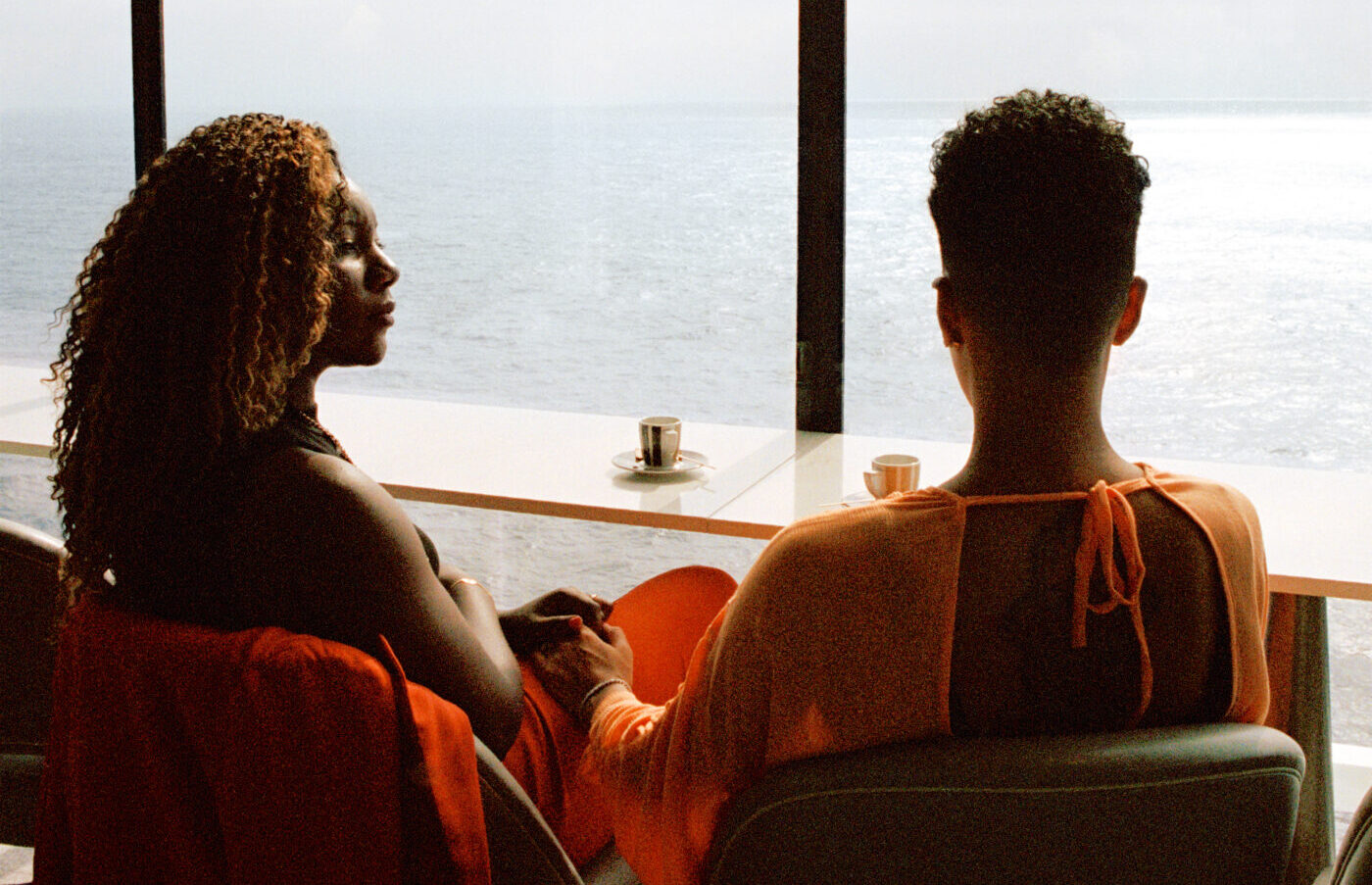Queer Family Travel, Limelight Gaycations, Rainbow Rebellions and Polydays are among the trends shaping the future of LGBTQ+ tourism, a market that will more than double in value by 2030.
With support from media partners Gay Times, TTG and Out There magazine, the Future of Queer Travel was launched at a live event at the Mondrian Shoreditch with contestants from UK’s first gay reality dating show I Kissed a Boy (pictured below).
The forecast, which is free to download from globetrender.com, identifies eight trends that will shape the future of travel for the LGBTQ+ market. These include: “Queer Family Travel”, “Limelight Gaycations”, “Rainbow Rebellions”, “Polydays” and “Pride Power”.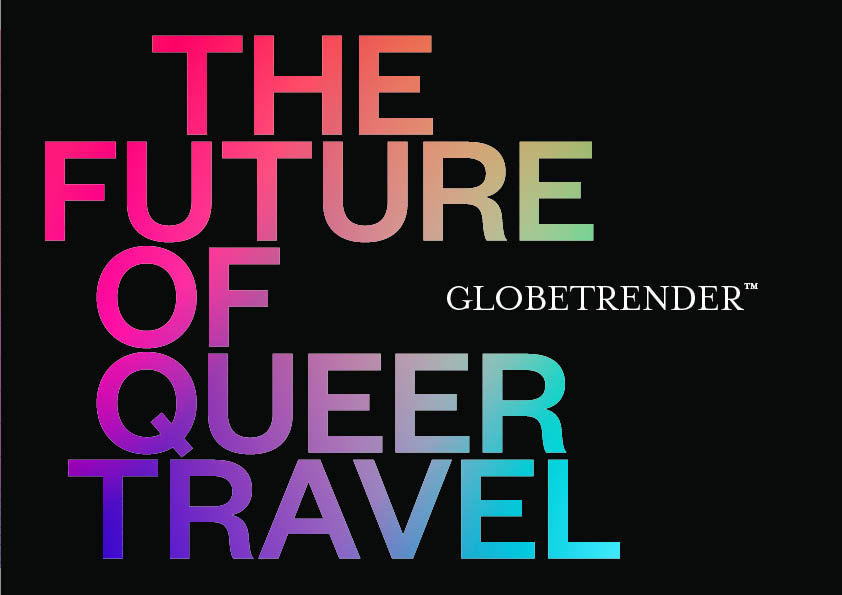 Jenny Southan, editor, founder and CEO of Globetrender, said: “A big reason we chose Queer Family Travel as our number-one trend is because more and more rainbow families are emerging – in 2019 there were almost quarter of a million same-sex families in the UK, an increase of 40% since 2015.
Jenny Southan, editor, founder and CEO of Globetrender, said: “A big reason we chose Queer Family Travel as our number-one trend is because more and more rainbow families are emerging – in 2019 there were almost quarter of a million same-sex families in the UK, an increase of 40% since 2015.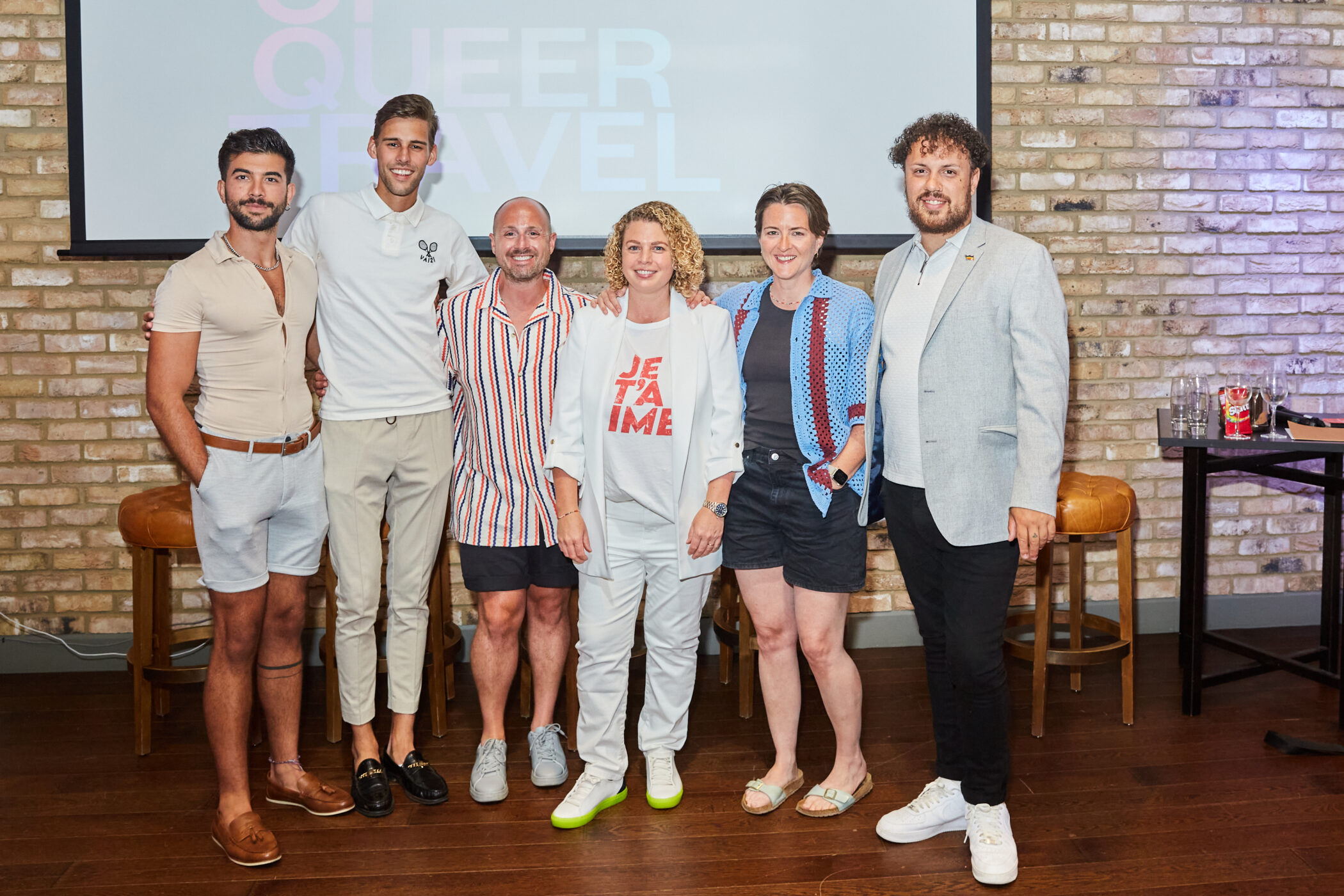 “It was also because of the publication of an important milestone book last month – The Queer Parent: Everything you Need to Know from Gay to Ze – which was co-authored by my wife Lotte Jeffs and Stu Oakley (pictured above centre). My wife and I have a young daughter and Stu is a gay married man with three adopted children.
“It was also because of the publication of an important milestone book last month – The Queer Parent: Everything you Need to Know from Gay to Ze – which was co-authored by my wife Lotte Jeffs and Stu Oakley (pictured above centre). My wife and I have a young daughter and Stu is a gay married man with three adopted children.
“In this book they highlight some of the unique challenges we face when travelling as queer parents, such as how we are ‘outed’ all the time by cries of ‘Mummy, Mama’ or ‘Daddy, Papa’. What this means is that queer families need to be far more discerning and thoughtful about where they visit to ensure they won’t encounter homophobia.”
THE EVENT
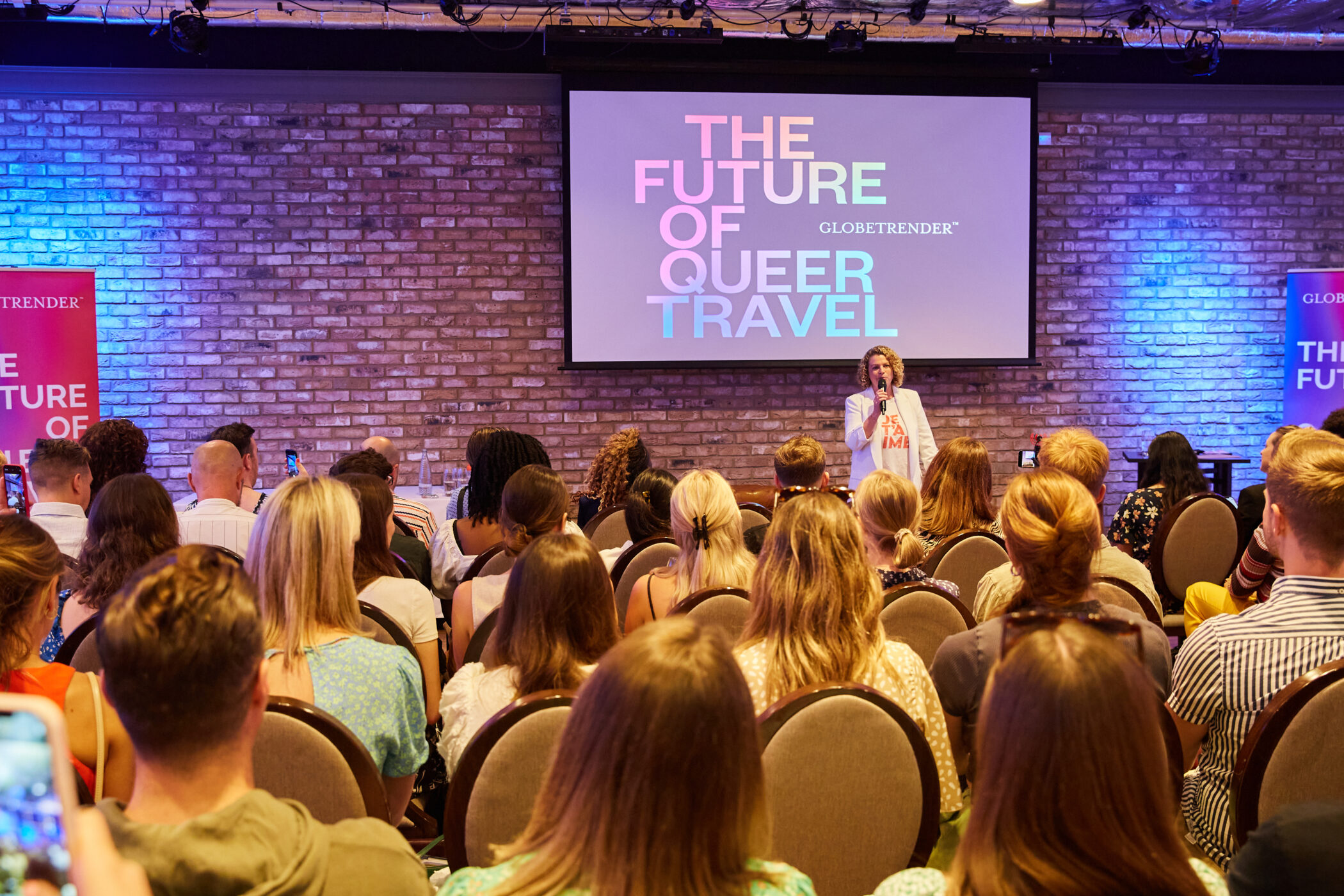 The trends were revealed on June 14 at a live event at the Mondrian Shoreditch hotel in London, which was attended by both press and senior figures from across the travel industry.
The trends were revealed on June 14 at a live event at the Mondrian Shoreditch hotel in London, which was attended by both press and senior figures from across the travel industry.
David Lockhart, general manager of the Mondrian hotel, said: “I have been with my husband for 13 years, we have children and we travel a lot, but I have had more than one or two complicated eyebrow raises. So this is something I am very passionate about. It is something we should all be very passionate about.
“Service and hospitality are all about discretion and humility. And it should always be about inclusion. This event is something we thought we should definitely be a part of. You can programme for Pride but it’s some important that corporations do it with some style and some substance.” During the event there was also a panel discussion between five diverse queer commentators, including a contestant from BBC Three’s new gay reality dating show I Kissed a Boy. Bobski and Vitor from the TV show were also in attendance.
During the event there was also a panel discussion between five diverse queer commentators, including a contestant from BBC Three’s new gay reality dating show I Kissed a Boy. Bobski and Vitor from the TV show were also in attendance.
- Kailum Webster, travel consultant and contestant on BBC reality dating show I Kissed a Boy
- Sophie Griffiths, editor and chief purpose officer for TTG
- Stu Oakley, founder of Assemble Publicity, and co-author of The Queer Parent. He is also the co-host of podcast From Gay to Ze
- Aisha Shaibu-Lenoir, founder of Moonlight Experiences and LGBTQIA+ Ambassador for Contiki
- Chris King, CEO of Lightning Travel Recruitment
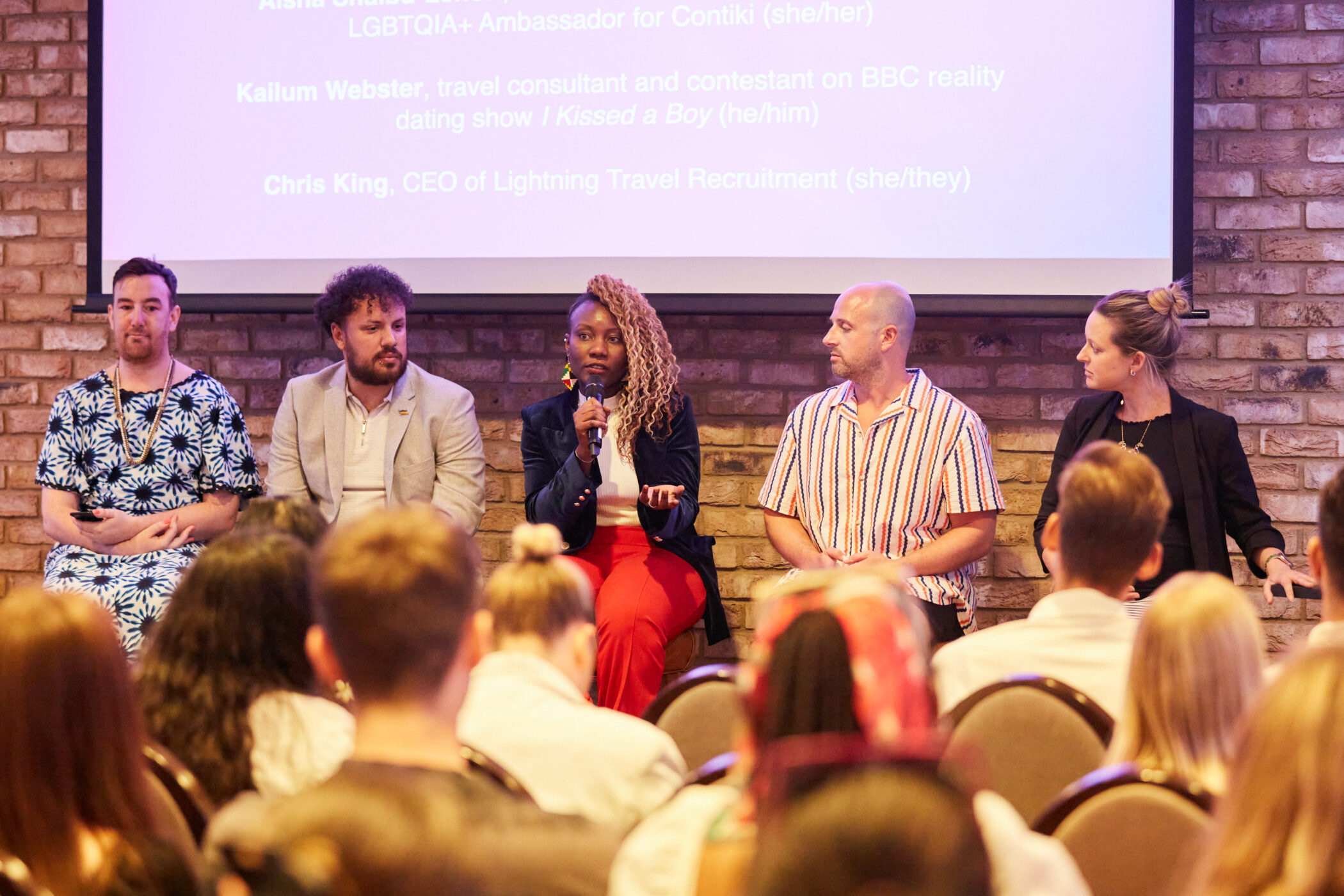 Southan said: “Globetrender’s Future of Queer Travel trend report is a project I have personally wanted to produce for about three years but it has taken considerable time to get off the ground.
Southan said: “Globetrender’s Future of Queer Travel trend report is a project I have personally wanted to produce for about three years but it has taken considerable time to get off the ground.
“After I was selected as one of Attitude magazine’s “LGBTQ+ Travel Trailblazers” for 2023, I decided the moment was right, and managed to secure sponsorship from Contiki, Meet Boston and Discover New England who came on board as partners for this important piece of work.
“Globetrender has also launched a new ‘Queer’ section on its website for LGBTQ+ travel content to help consumers become better informed.”
THE REPORT FINDINGS
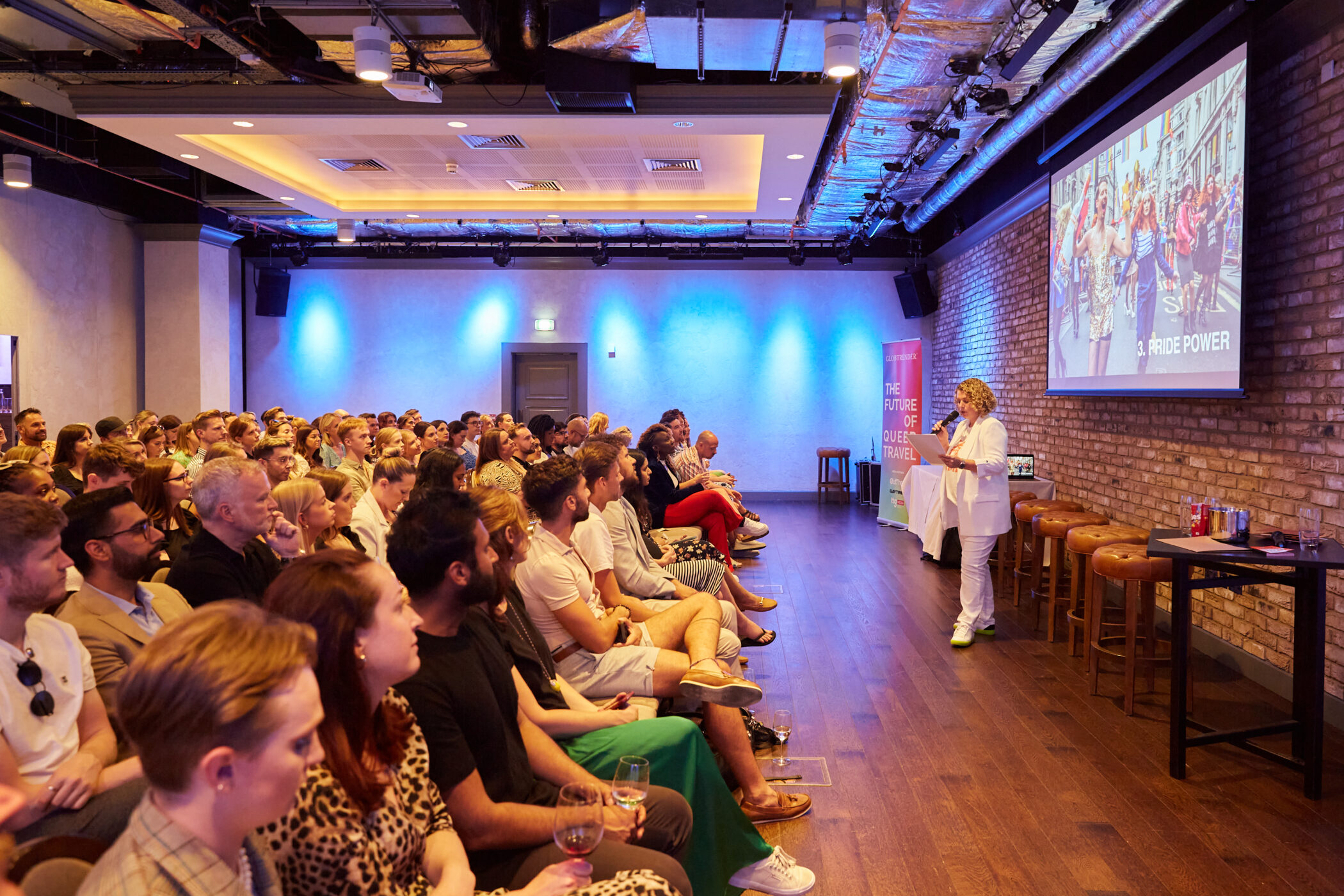 Southan said: “Over the past ten years, the queer travel market has grown enormously – when travel was at its peak before the pandemic, travel spending from queer people reached US$218 billion worldwide. By 2030, experts predict that travel spending by queer travellers could reach US$568.5 billion.
Southan said: “Over the past ten years, the queer travel market has grown enormously – when travel was at its peak before the pandemic, travel spending from queer people reached US$218 billion worldwide. By 2030, experts predict that travel spending by queer travellers could reach US$568.5 billion.
“Why? Firstly, queer travellers are more intrepid and hungry for travel than ever before. Secondly, in many cases they also have more disposable income. And thirdly, the population of people who identify as queer is increasing. In 2021, a landmark UK Census revealed that 6.9% of Gen Zs identified as LGB+ compared with 3.5% of Millennials, and 1.6% of Boomers.

“For the travel industry, this is a clear indication of distinct market opportunities (particularly among people under the age of 45). It is also an urgent call for better understanding and appreciation of this growing and richly varied consumer group.”
She added: “In terms of progress for LGBTQ+ human rights, there are steps forward and steps backwards. Gay marriage is legal in 34 countries (up from just one in 2001) but homosexuality is still illegal in 67 countries. In 2023, the president of Uganda signed one of the world’s toughest anti-LGBTQ laws, but at the same time, Latvia welcomed the modern world’s first openly gay president.
“At Globetrender, we are optimists. We strongly believe in travel as the ultimate expression of freedom, and a unifying force that brings people closer together.”
WHY IS GLOBETRENDER USING THE WORD ‘QUEER’?
Southan said: “Globetrender uses ‘queer’ as an umbrella term for people who are not heterosexual or are not cisgender. In the past, queer was used as a derogatory slur, but we feel the time is right to reclaim it, and use ‘queer’ as a simple, inclusive alternative to the ever expanding acronym of LGBTQIA+.”
FIVE QUEER TRAVEL TRENDS
1. QUEER FAMILY TRAVEL
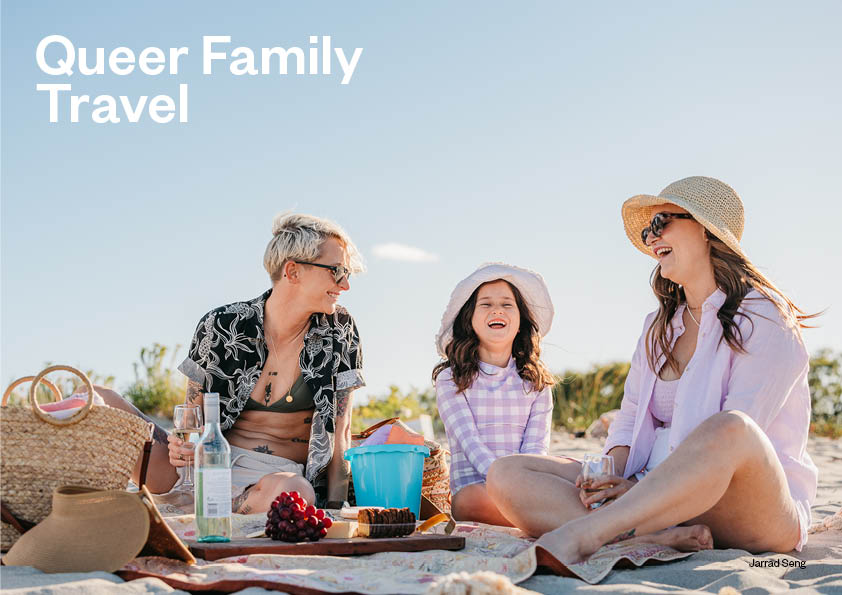 In the world’s most progressive countries, queer families have only been “legal” for about 20 years, meaning Millennials are the first generation to be able to embrace queer parenthood in a socially acceptable way, with the law on the side of them and their children. The first adoptions by same-sex couples in Finland didn’t happen until 2020. This year, Taiwan became the first jurisdiction in Asia to allow same-sex parents to adopt.
In the world’s most progressive countries, queer families have only been “legal” for about 20 years, meaning Millennials are the first generation to be able to embrace queer parenthood in a socially acceptable way, with the law on the side of them and their children. The first adoptions by same-sex couples in Finland didn’t happen until 2020. This year, Taiwan became the first jurisdiction in Asia to allow same-sex parents to adopt.
From surrogacy to IVF, there are many paths to parenthood, but for queer people the rules and rights within countries that support queer families remain complex. Popular holiday destinations that could be problematic for queer families to go to (due to the fact being gay there is criminalised) would be Barbados, Jamaica, Saint Lucia, Indonesia, Malaysia, Mauritius and Morocco.
However, as Stu Oakley highlights in The Queer Parent, even when you make a sensible choice about a queer-friendly destination (such as Cuba), you can’t always predict who the other guests at the resort will be. In his case, he encountered a group of Russian women who left in the middle of their meal when they found out he was gay. (They’d been admiring his three children and asked where their mother was.)
2. LIMELIGHT GAYCATIONS
 According to a 2023 survey by American Express, 64% of respondents said they made travel plans or were inspired to visit a specific country or destination after it was featured on a TV show or film. For the queer community, “Limelight Gaycations” will be particularly in demand, especially as there is so much more positive queer content appearing on screens.
According to a 2023 survey by American Express, 64% of respondents said they made travel plans or were inspired to visit a specific country or destination after it was featured on a TV show or film. For the queer community, “Limelight Gaycations” will be particularly in demand, especially as there is so much more positive queer content appearing on screens.
Boosting Google searches for “masseria” rentals in southern Italy is reality show I Kissed a Boy, which is airing now on the BBC and is set in a stunning renovated farmhouse. Hosted by Danii Minogue, I Kissed a Boy brings together a diverse pool of young gay men with the aim of finding out if a single kiss can spark a long-lasting relationship.
Probably the hottest example of a TV show that has made headlines not only for its brilliant storytelling but for its cast of camp and queer characters is The White Lotus, Four Seasons Resort Maui at Wailea, and season two in Sicily, at the San Domenico Palace, Taormina, a Four Seasons hotel.
Bookings exploded to such an extent after it aired in autumn 2022 that the travel industry has been calling it “The White Lotus Effect” and there are high hopes for season three, which will be set in the queer-friendly country of Thailand.
3. RAINBOW REBELLIONS
 As every queer person knows, there are situations – often on a daily basis – where we know we have to modify our behaviour or protect our true identity in some way. While this is not an optimum way of living, this ability to “social camouflage” means that a rising number of queer people are willing to sacrifice personal liberties in favour of exploring destinations in spite of their anti-LGBT laws.
As every queer person knows, there are situations – often on a daily basis – where we know we have to modify our behaviour or protect our true identity in some way. While this is not an optimum way of living, this ability to “social camouflage” means that a rising number of queer people are willing to sacrifice personal liberties in favour of exploring destinations in spite of their anti-LGBT laws.
For a lot of privileged Westerners (especially Millennials) for whom travel has felt like a right, being queer is not enough of a reason not to go somewhere. A sense of defiance combined with entitlement motivates them to book “Rainbow Rebellions” to destinations such as the Middle East, Africa, Jamaica, Malaysia and China. Another reason is that local laws tend to be enforced more on local people than foreign tourists and so long as queer travellers “keep their heads down” they can avoid confrontations.
4. POLYDAYS
 Welcome to travel’s new “sharing economy”: polyamory, which is a form of ethical non-monogamy that sees individuals forming romantic connections with more than one partner at the same time. In years to come, polyamory will transform the way we think about everything from marriage and families, to dating and divorce (will break-ups go down if the pressure of monogamy is removed?).
Welcome to travel’s new “sharing economy”: polyamory, which is a form of ethical non-monogamy that sees individuals forming romantic connections with more than one partner at the same time. In years to come, polyamory will transform the way we think about everything from marriage and families, to dating and divorce (will break-ups go down if the pressure of monogamy is removed?).
Although the trend is occurring among straight people too, the queer community is already ahead of the curve. Looking at the corresponding emerging travel trend, when a “throuple” goes on holiday, Globetrender calls it a “Polyday”.
According to Newsweek, in 2021, one in nine Americans have been in a polyamorous relationship and one in six would like to try one. Meanwhile, data from dating app Feeld shows there was a 500% increase in searches for “polyamory” in 2022.
5. PRIDE POWER
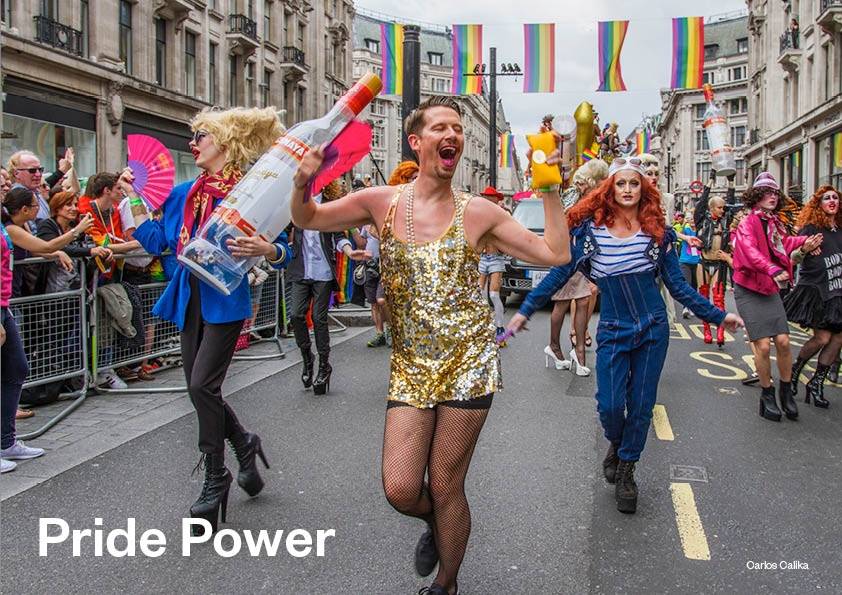 For many queer people, going abroad to take part in Pride parades and parties are a major event in the annual calendar. They’re also a great way to meet new people, be more free to express yourself and experience cities at their most wild and fun.
For many queer people, going abroad to take part in Pride parades and parties are a major event in the annual calendar. They’re also a great way to meet new people, be more free to express yourself and experience cities at their most wild and fun.
Last year, Gay Times magazine revealed that 60% of the LGBTQ+ community seek out experiences such as Pride when away from home. Tapping in to the “pink pound”, Pride events can be really lucrative for the travel industry.
According to booking data from Airbnb, hosts collectively earned more than US$77 million during Pride celebrations last year. This likely comes down to the fact that, since 2017, the number of hosts around the world using queer-inclusive language on their rental postings has surged by nearly 90%.

